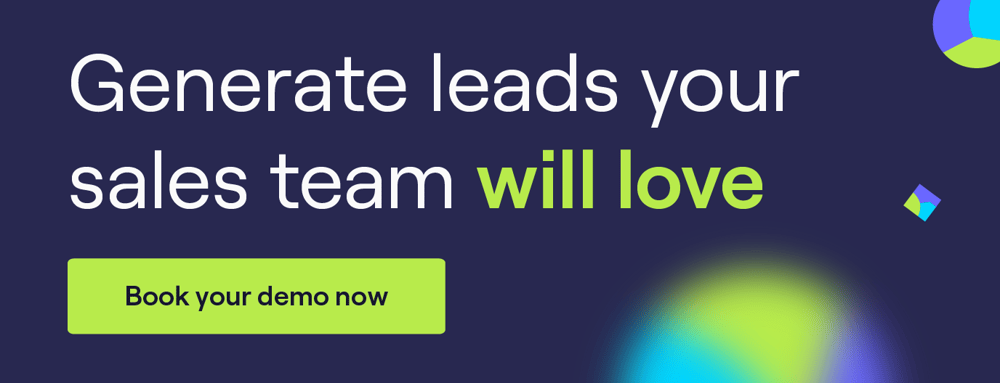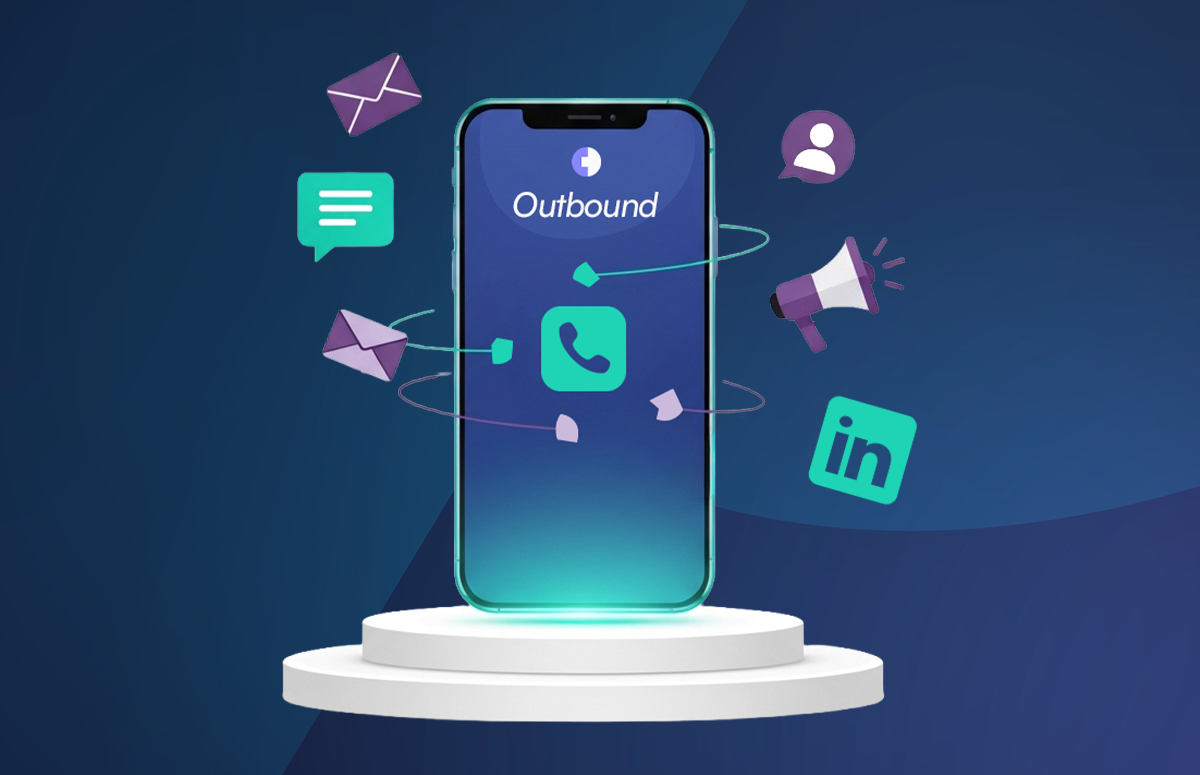17 Best Enterprise Sales Tools Tested For Efficiency
Enterprise sales tech stacks are notorious for software redundancies, data silos, and disconnected or neglected tools.
These costly issues lead to sales inefficiencies that strangle revenue.
So, to help you build a more interconnected tech stack, we’ve compiled a list of enterprise sales tools that work well together.
We cover all the major categories of tools that most enterprise sales teams require.
Now, discover which tools made the cut.
1. Cognism
Cognism is a must-have tool for enterprise sales teams prospecting internationally. It offers high-quality B2B data globally and has the best coverage in EMEA.
Leading global enterprise customers across industries rely on Cognism to:
- Build pipeline faster by connecting with decision-makers faster.
- Remove manual sales work with best-in-class 1-click integrations.
- Turn outdated data into new opportunities with data enrichment.
- Prospect confidently with enterprise-grade compliance and security.
See the platform in action - take an interactive tour 👇
Overview of Cognism's features
- Sales Companion (Web App): Access a vast database of contacts, companies, and buying signals.
- Sales Companion (Browser Extension): Access company and contact details on LinkedIn and other platforms.
- Diamond Data®: Phone-verified mobile numbers for B2B contacts.
- Intent data by Bombora: Identify companies researching topics relevant to your business.
- Cognism AI Search: Find prospects with ChatGPT-style text or voice prompts.
- Cognism Enrich: Instant and scheduled CRM enrichment and on-demand CSV enrichment.
- Seamless integrations with CRMs and sales and marketing tools.
- International coverage: EMEA, NAM, APAC.
- Fully GDPR and CCPA-compliant data.
- Database checked and cleaned against global DNC lists.
- Fast and friendly support team.
- Unrestricted access to person and company-level data (subject to fair use policy).

CEO @Lead Forensics

Cognism pricing
Choose a package to suit your needs:
- Grow, which offers essential contact and company data for prospecting.
- Elevate, which combines Cognism’s high-quality data with advanced intelligence and actionable signals.
Both packages include:
- Contact and company data, including phone-verified Diamond Data® contacts.
- Target market analytics.
- Integrations with leading CRMs and engagement tools.
- No hidden platform fees: You only pay for licenses and add-ons.
- Onboarding and training: We ensure a smooth and successful start.
- Exceptional customer support: Get fast answers via live chat (20-second average response time) from our highly-rated support team (99% satisfaction score).
2. Bombora
Bombora is a sales intelligence tool for tracking sales intent data.
Monitoring your leads’ behaviour across 5,000+ B2B websites and analysing what they’re researching tells your reps when leads are likely interested in a sales conversation.
This tool allows enterprise sales reps to strike when the iron is hot and prioritise quality leads.
Bombora integrates into Cognism Sales Companion. This way, after you’ve identified accounts that are likely to buy, you can generate a targeted prospect list for these accounts and reach out to them by phone or email.

Head of Cloud Sales @Ultima
Best features
- Consent-based buying intent data.
- 70% of its dataset is exclusive to Bombora.
- Considers the historical baseline or typical content consumption when calculating intent.
- Integrations with Salesforce, Cognism, Outreach, and more.
Pricing
- Reach out for a quote.
3. Salesforce
Salesforce Sales Cloud is a highly customisable, AI-powered sales CRM with robust security features. That combination makes it a highly effective tool for enterprise sales teams. It improves efficiency by centralising customer information and leveraging it to create time-saving automation.
Sales leaders can build custom reporting, dashboards, and automation so that the tool meets specific enterprise needs and workflows.
For those with a passion for AI, Salesforce’s higher plans are a great choice. They provide AI sales tools like predictive sales analytics, AI-driven deal insights, and an intelligent copilot that suggests how to move deals forward effectively to reps.
Cognism works over Salesforce so reps don’t have to leave the tool to access accurate data.

Business Development Director @Frank, Bright & Abel
Best features
- Lead, contact, deal, and account management.
- Sales analytics and forecasting.
- Enterprise sales tracking.
- Pipeline management.
- Sales automation.
- AI Einstein Copilot.
Pricing
- Starter: $25 per user per month.
- Pro: $100 per user per month.
- Enterprise: $165 per user per month (adds advanced forecasting, pipeline management, and other enterprise-focused sales tools).
- Unlimited: $330 per user per month (Includes some built-in AI features).
- Einstein 1 Sales: $500 per user per month (includes all built-in AI features).
4. Outreach
Outreach is a sales engagement platform that helps enterprise sales teams conduct personalised, multi-channel outreach at scale.
Reps can build automated outreach sequences containing pre-written emails, LinkedIn tasks, and call tasks.
While running these sequences, they can track each lead’s activity (email opens, replies, etc.) and their progress through the sequence.
Its seamless integrations with popular enterprise sales tools like Salesforce, Cognism, email, and calendar applications ensure streamlined enterprise-level operations.
Best features
- Custom multi-channel outreach sequences.
- Auto-personalising email templates.
- Lead activity tracking.
- Email automation.
- Opportunity management.
- Productivity tools for SDRs and AEs.
- Revenue forecasting.
Pricing
- Per user pricing.
- Reach out for a custom quote.
- Support always included.
5. Pipedrive
Pipedrive is an easy-to-use sales CRM with key features like custom reporting, sales tracking, and pipeline management.
Enterprise sales leaders rely on its custom Kanban-style dashboard to standardise their sales process across their team and run reports to identify underperforming stages and process bottlenecks.
And sales reps can easily visualise their pipeline; move deals through it, and track contact activity and deal value.
Pipedrive also integrates with Cognism, allowing you to enrich the CRM with high-quality account and contact data.
Best features
- Visual, kanban style sales funnel.
- AI Sales Assistant.
- Enterprise sales tracking
- Sales forecasting.
- Robust sales automations.
Pricing
- Essential: $14 per user per month.
- Advanced: $29 per user per month.
- Professional: $49 per user per month.
- Power: $64 per user per month.
- Enterprise: $99 per user per month.
6. Salesloft
Salesloft is a sales engagement platform that helps reps manage and automate their outreach with multi-channel sales cadences, email automation, sales playbooks, and performance analytics.
The platform is quite similar to Outreach but has a lower starting price, a higher G2 ease-of-use score, and additional functionality for customer success teams.
This tool is designed to scale with your business. It’s suitable for growing sales teams. It can easily accommodate increasing data and user demands as your organisation grows.
Outreach, however, has a denser feature set and a bit more customisation options, which might contribute to its higher price and lower ease of use.
Regardless of which tool you choose, both integrate with Cognism so you can populate it with accurate lead and prospect data.
Best features
- Custom sales cadences.
- Lead activity tracking.
- Sales playbooks (standardise best practices and content).
- Conversational intelligence.
- One-click dialer.
- Performance analytics and reporting.
- Opportunity management.
Pricing
- Offers 3 packages: Essentials, Advanced, and Premier.
- Must reach out for a quote.
7. LeanData
LeanData is a revenue orchestration platform for enterprise sales that automates revenue processes and turns CRM data into valuable insights.
Native to the Salesforce platform, it’s available for purchase on the Salesforce App Exchange.
Enterprise sales leaders depend on it to automatically match new records with accounts, unlock details about buying signals entering your CRM, route records to the best possible rep, and generate revenue reports to optimise the process.
The platform also uses sophisticated measures to automate data hygiene, which is a critical solution for large-scale organisations processing large quantities of data.
Best features
- Lead routing.
- Data matching.
- Data management.
- Revenue process reporting.
- Automated deal notifications.
Pricing
- Standard: $39 per user per month.
- Advanced: $49 per user per month.
- Premium: $59 per user per month.
- Enterprise: Custom pricing.
8. Gong
Gong is a revenue intelligence platform that monitors customer interactions — such as sales calls or demos.
It then analyses these interactions to give you and your team data-driven performance feedback. Sales teams use the tool to improve the various parts of enterprise sales processes.
It allows your sales managers to identify best practices, spot common sales mistakes, and coach reps more effectively.
Reps can also use the platform to self-coach, either by implementing AI suggestions or by studying the library of call recordings of top performers in your company.
The platform integrates with other enterprise sales and communication tools, making it invaluable for improving sales efficiency and decision-making.
Best features
- AI concept tracking.
- AI-informed coaching.
- Call recording and analysis.
- Performance reports.
- Best practice library.
- Sales engagement features.
Pricing
- Priced per user.
- Custom pricing.
- Reach out for a quote.
9. Crayon
Crayon is competitive intelligence software that enables enterprise sales teams to track competitors, spot ways to beat them, and create sales enablement content (like competitor battle cards) that empower them to win.
To help reps stay informed about the competitive landscape, Crayon automatically surfaces high-priority competitor news and changes in their inbox. The tool also uses AI to summarise new articles and press releases about your competitors.
Then, on the platform, you can easily share those insights with your sales team in the form of newsletters, announcements, or battle cards (which you can sync into Salesforce, Slack, or other integrated tools where your salespeople work).
Best features
- Competitor analysis.
- AI news summarisation.
- AI Importance scoring.
- Sales enablement content creation.
- Competitor win/loss analysis.
- Battlecard engagement data.
Pricing
- Unlimited competitor tracking, users, and battle cards/dashboards.
- Must request a custom quote.
10. Qatalog
Qatalog is an enterprise search solution that enables reps to retrieve information from various internal data sources. It’s an essential tool for large organisations with diverse and distributed information resources.
It’s a standout enterprise sales tool that improves reps’ efficiency by simplifying access to customer data. It can gather essential insights, create detailed snapshots of prospects in seconds, summarise lengthy documents concisely, and more.
Admins can manage access levels for different users and decide what integrations and information folders are connected to the Qatalog.
Best features
- Centralised knowledge hub.
- No data-indexing.
- Enterprise-grade data security and compliance.
- Integrations with other enterprise systems (Salesforce, HubSpot, Marketo).
- Customisable workflows.
Pricing
- 14-day free trial.
- Must request a custom quote.
11. PandaDoc
PandaDoc is a contract management software platform that helps enterprise sales teams create, manage, negotiate, e-sign, and track sales contracts and proposals.
It offers hundreds of proposal templates across dozens of industries and proposal types, allowing your team to easily build sales documents that close the deal.
Enterprise sales teams also use the tool to create custom approval workflows to simplify and standardise their internal sign-off process.
With document tracking, you can see how users interact with your contracts and templates, so you always know when they’ve been opened, viewed, and signed.
Best features
- Contract and proposal templates.
- Document tracking.
- Quote builder.
- Content performance analysis.
- Custom sales proposal builder.
- E-signature.
- Document collaboration.
Pricing
- Essentials: $19 per seat per month (2 seat maximum)
- Business: $49 per seat per month
- Enterprise: Custom pricing (includes Smart Content and CPQ features)
12. Storylane
Storylane is an interactive product demo software that helps sales teams build, share, publish, and analyse interactive product demos.
Enterprise sales teams use tokenised demos to personalise product demos for every prospect easily. Simply adapt any text, image, logo, or data element in your demo to better match your prospect’s interests.
After sending demos, your reps will receive engagement data, enabling them to personalise their follow-up.
Best features
- Interactive demo builder.
- Demo personalisation.
- Tokenised demos.
- Viewer engagement analysis.
- Demo performance analysis.
Pricing
- Solo: Free.
- Starter: $40 per creator per month.
- Growth: $100 per creator per month (minimum of 5 creators).
- Enterprise: Reach out for a quote (custom users, enterprise-scale security, and demo coaching).
13. Mailtastic
Mailtastic is a unique enterprise sales software providing email signature management.
It lets you quickly create impactful email signatures that supercharge enterprise reps’ sales emails.
Leaders can manage and control these signatures across departments, locations, and brands from one centralised online dashboard.
And when a company change inevitably occurs—like a new address or phone number—in just a few clicks, you can change your entire team’s signature to match it.
Best features
- Automated email lead generation.
- Signature differentiation by department, product, and more.
- Comply with legal requirements.
- Email signature library.
- Connects with Microsoft 365 and Google Workspace.
Pricing
- 14-day free trial.
- Request a custom quote.
14. Helpdesk
HelpDesk is an IT service desk software that helps your customer support team manage customer messaging and streamline ticket handling.
This enterprise-level sales tool has automation features such as smart ticket assignment and macros for running pre-set ticket actions.
Focused on helping your team work together, it also includes useful collaboration features like colleague mentions, allowing reps to loop in a colleague to assist with a ticket.
Plus, it’s jam-packed with AI features. Enterprise sales teams can benefit from tools like ticket summaries and AI-powered tone enhancements, which enable reps to make quick and competent replies.
Best features
- Ticket management.
- Smart ticket routing.
- Automated ticket handling workflows
- Collaboration tools for enterprise sales.
- Response templates.
- Ticketing reports and analysis.
Pricing
- 14-day free trial.
- Team: $29 per agent per month.
- Business: $50 per agent per month.
- Enterprise: Custom pricing.
15. Copy.ai
Copy.ai is an AI content creation platform for enterprise sales teams. It is designed to craft quality sales content more quickly using the power of generative AI.
The platform offers over 90 pre-built copy templates and AI content generation workflows for various sales copy formats, from sales emails, to LinkedIn posts, to product descriptions.
A tool like this helps salespeople engage in social selling, write stronger emails, and leverage the power of quality copywriting, regardless of their abilities.
Best features
- 90+ content templates.
- Generative AI for a variety of copy formats.
- Content revision suggestions.
- 25+ languages.
- Chrome extension.
- Plagiarism checker.
Pricing
- Free: 1 seat, 2,000 words in Chat.
- Starter: $36 per month (1 seat).
- Advanced: $186 per month (up to 5 seats).
- Enterprise: Custom pricing (offers 20+ tech integrations and API access).
16. Coupler.io
Coupler.io is a data reporting automation solution that turns complex data into insightful reports. It helps to gather, organise, and visualise your sales data in BI tools, spreadsheets, and data warehouses.
The platform enables 500+ no-code integrations, including Pipedrive, Hubspot, Salesforce, and more. It helps to manage sales performance and metrics across channels.
Coupler.io also offers a gallery of ready-to-use dashboard templates for streamlined data visualisation. Dashboards are self-updating; you only need to set up time preferences.
Best features
- No-code data integration with various sales apps.
- Cross-channel sales analytics.
- Gallery of ready-to-use dashboard templates.
- Automatic data refresh from every 15 minutes.
Pricing
- Forever free plan.
- 4 Paid plans (from $24/month to $249/month).
- Paid plans offer a 7-day free trial.
17. HubSpot Sales Hub
HubSpot Sales Hub, uses numerous AI-powered features to boost lead prospecting efforts.
Sales reps can use the platform to automatically develop hyper-personalised email outreach campaigns at scale and enrich CRM lead data with information from publicly available resources.
Plus, the platform’s CRM integrates customer data from sales, marketing, and customer service departments, so sales leaders can get a 360-degree overview of their ideal customer profiles and buyer journey.
In addition, Sales Hub includes various other features designed to make sales reps’ jobs easier, like built-in meeting schedulers, call coaching and tracking, team performance reports with leaderboards, and more.
Best features
- Automated AI recommendations to help sales reps in decision-making.
- Email automation with follow-ups and advanced personalisation tools.
- Customisable sales analytics and forecasting dashboards.
- Lead, contact, and deal management.
- Dedicated AI prospecting agent.
- Call coaching.
Pricing
- Free.
- Sales Hub Starter: $9 per user per month.
- Sales Hub Professional: $90 per user per month.
- Sales Hub Enterprise: $150 per user per month.
How to optimise enterprise sales tech stack?
Tech stacks have bloated over the software boom, and managing enterprise sales tools has become more complex.
Optimising the process of adopting and managing an effective sales tech ecosystem in large-scale organisations is a critical initiative.
To optimise your enterprise sales tech stack, follow these eight steps:
1. Assess current tools and processes
Identify which tools are underperforming by evaluating adoption rates and KPIs. For enterprise tools, ensure that your processes align with industry best practices before deciding to replace any underperforming solutions.
2. Define your objectives
Clarify your enterprise sales KPIs, objectives, and challenges. For instance, if your goal is to scale lead generation, consider exploring advanced sales engagement and intelligence platforms designed for large-scale operations.
3. Ditch redundant software
Assess whether different departments are using disparate CRMs or if multiple tools overlap in functionality. Consolidate these systems to streamline operations, reduce costs, and improve cross-departmental synergy.
4. Find new tools
Explore sales technology platforms that can help meet your enterprise objectives. Look for specialised solutions that address gaps in your current stack, such as advanced lead routing or comprehensive analytics, even if they overlap with basic CRM functions.
5. Integrate your sales tools
Prioritise sales tools that offer seamless integration capabilities. Use integration platforms like Zapier or native connectors to eliminate data silos and ensure smooth cross-platform information flow and automation.
6. Train your team
Provide comprehensive training sessions and resources to your sales teams. Implement workflows within your enterprise tools to ensure efficient and effective usage, enhancing overall productivity.
7. Monitor performance and cost
Establish performance benchmarks to evaluate the effectiveness of your sales tools. Regularly review reports to assess improvements in sales metrics and negotiate with vendors to optimise service packages and cost efficiency.
8. Hold regular tech stack audits
Conduct audits of your tech stack every 6-12 months. Evaluate whether each tool remains relevant, assess innovations and new features, identify missing tools, and determine areas in the sales process needing additional support.
For more strategies for tech stack optimisation, check out Forrester’s 3-strategy framework.

/Cold%20calling%20strategy/cold-calling-strategy-card.webp)

